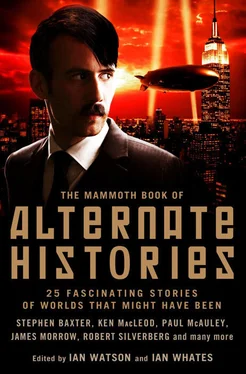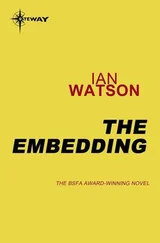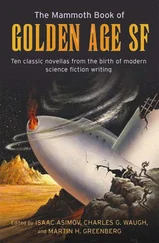She shook her head. “It is not that. So many disconnected facts to commit to memory!” Then she frowned. “I cannot place your accent, sir.”
“New Scotland,” I said, with a self-deprecating smile. “Hence the barbaric twang.”
She took this bold-faced lie without demur. I told another.
“My name,” I said, “is Steve Jones.”
“And mine,” she said, “is Mary Ann Dykes.”
“At your service, miss.”
“Thank you. Delighted to make your acquaintance.”
I gave my occupation, disingenuously, as commercial traveller in oranges. She gave hers as confidential servant.
“And why, if I may make so bold, are you studying zoology?”
“I am an orphan, sir,” she said. “I say this not to elicit sympathy, but to explain. I go to seek a post as a governess, in the Scottish capital. The mistress of the house has ambitions for her sons to be physicians, and I have been told that comparative anatomy is — but no!” She smiled suddenly. “That is true, but merely my excuse. The subject intrigues me.”
“As I said, an admirable pursuit.”
“But most taxing. Before my father passed away, he taught me the rudiments of mathematics, and of Newton. Would that zoology had its Newton!”
“I know little of that science,” I mused aloud, “but I have sometimes thought that, just as our poor will multiply to the limits of their wages, or of the poor-rates, the entire brute creation must perforce indulge in an even more wanton and thoughtless reproduction of their kind…”
Mary Ann didn’t blush. This history had no Victoria. She frowned.
“Yes?” she said. “Your drift, sir?”
“Yet as we see,” I went on, “the world is not over-run with” — I glanced out of the window — “rabbits, let us say, or nettles. All that are born do not survive, and those who do must, on average, have some perhaps slight advantage which — so to speak — selects them for survival over their less fit brethren. If we dare to imagine this process repeated, generation after generation, over many ages and revolutions of the Earth. but I fear I am rushing too far, in too speculative a direction.”
“No!” she said. She clutched my wrist, then withdrew her too-hasty hand. This time, she did blush. “Please, do go on.”
I did. By the time we reached the southern shore of the Firth of Forth, her textbook was covered with delighted scribbles linking facts at last, and her face with astonished smiles and happy frowns at the results.
I was about to part with her, at the station — which is called simply Edinburgh Central, Walter Scott in this world having remained an advocate at the Bar — smug in my Improving zeal, when she caught my elbow.
“Mr Jones,” she said, “may I presume upon our acquaintance to ask you to escort me to my destination? It is in the West Port, and — “ She looked away.
“And the Grassmarket is notorious for footpads, and you cannot afford a cab? Don’t worry, Miss Dykes. I can’t afford one either. Let us walk together.”
I carried her luggage. It was pathetically light.
“Mr Jones,” she enquired anxiously as we emerged from the rear of the station on to Market Street and caught our first stagnant whiff of the Nor Loch, “I see you carry no weapon.”
“I need none,” I assured her. “I am an adept in the martial arts of the East.”
She laughed. “Ancient arts are no match for a good pistol, sir, but I still trust in your protection.”
Across the Royal Mile, down St Mary’s Street into the Cowgate, then along beneath the North Bridge and Charles IV Bridge towards the Grassmarket. High, dank walls like cliff-faces dripped. Opium dens wafted their dark allure. Gypsy fiddles enlivened the air around hostelries. Homeward cars and velocipedes splashed through the noxious puddles. After the Cowgate, the Grassmarket was respectability itself, even with its tinker stalls, beggar families, skulking footpads, stilt-walking clowns, and carousing students of medicine, divinity and law. The flag of the Three Kingdoms, aflutter in the evening breeze, could be glimpsed over the Castle which, like its Rock, straddles history sturdy and aloof with only its flags changing, above the Grassmarket’s seething pool of probabilities.
Out of that seething pool stepped my pursuer. Two metres in front of us, and no one in between. If I hadn’t recognized his face, the levelled thing in his hand would have identified him surely enough. In this world, it might have seemed no more than a glittering toy, but Mary Ann divined its sinister import in an instant. Or perhaps she just reacted to my start. She clutched my upper arm with both hands. From the point of view of one about to draw on the martial arts of the East, this was not a welcome move, however pleasing it might have been under other circumstances.
After a split second of bafflement, I realized that my pursuer must have stayed in the GBR, guessed — or been leaked — my destination and blithely taken the faster train of that more advanced world, then sidestepped to this world of Tairlidhe’s victory to await me. How he’d found out that this was the world to which I’d fled to evade him, I didn’t care to guess. Infiltration and defection are permanent possibilities, across all probabilities.
I had no choice. I sidestepped, back to the GBR. I may have hoped my pursuer wouldn’t expect that, but in all honesty it was a reflex.
I had never before sidestepped with someone holding on to me. I was almost as surprised as Mary Ann to find us still together, in a different Grassmarket.
“What is this?” she cried, gazing around bewildered at the suddenly airier, cleaner, brighter and even noisier space of the plaza. She let go off me, and took a swift pace or two back and looked at me with suspicion and dread. “What arts of the East have you used, Mr Jones? Sorcery? Illusion?”
“Not these, I fear,” I said. “This is real. It is a different reality than that to which you are accustomed — one in which history took a different turn, centuries ago.”
She seemed to grasp the concept at once.
“Are there many such?”
“An infinite number,” I told her.
“But how marvellous! And yet how obvious, that the Creator’s infinity should be reflected in His creations!”
“That’s one way of looking at it,” I allowed.
Mary Ann looked around again, more calmly now, though I could see her quivering.
“I see this is a history in which the Covenanters’ memory is honoured,” she said. She pointed to one of a trio of statues. “I recognize that visage, of Richard Cameron. But who are the others?”
“They will mean nothing to you,” I said.
“I want to see them, all the same.”
She was intrigued by the pedestrian crossing, and impressed by the vehicles, tinny and two-stroke though they were. I nudged her to stop her staring at women with bare heads and short skirts. We stopped beneath the statues.
The stern man in the homburg, with upraised, didactic, forefinger:
“John Maclean,” she read from the plinth. “A preacher, was he?”
“In a manner of speaking,” I said. “And in his manner of public speech, by all accounts.”
The man in the short coat, with glasses and pipe — and, Scotland being Scotland in all manifestations, with a traffic cone on his head:
“And ‘Harold Wilson, martyr of British democracy’?” She recoiled almost, frowning. “A democrat ? A radical?”
“Not precisely,” I said, looking around distractedly. “It would take too long to explain. That man who confronted us — he may catch up at any moment. I must go.”
“What about me, Mr Jones?” Mary Ann said.
“I’m sorry,” I said, still looking about. “I can’t take you with me. It’s far too dangerous. You’ll be safe here for now.” My gaze alighted on a tall concrete building, from which hung a banner with a jowly, frowning, face and the letters “GB”. I pointed.
Читать дальше












